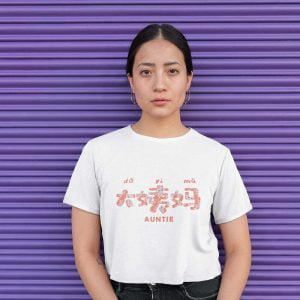What Does ‘Atas’ Really Mean in Singlish?
In Singlish, calling someone “atas” means they’re acting snobbish, high-class, or putting on airs. But this popular Singlish phrase carries much deeper meaning—it’s packed with history, humor, and social commentary that reflects Singapore culture perfectly.
-
Grunge, hokkien, Romper, singlish, Typography
$25.00 Select options This product has multiple variants. The options may be chosen on the product page
- ‘Atas’ is one of the most popular Singlish words used to describe someone as snobbish, posh, or elitist.
- Originated from Malay, where ‘atas’ simply means ‘up’—it evolved in Singapore slang to suggest someone acting ‘above’ others.
- Used across generations to call out perceived class divides or pretentious behaviors.
- Commonly used playfully—”Wah, so atas ah you”—but can also highlight deeper social tensions in local culture.
- This Singlish phrase remains popular because it combines social critique, humor, and cultural bonding in one word.
- Understanding ‘atas’ gives you insight into how Singaporeans navigate class and identity through language.
Overview of ‘Atas’ in Singapore Slang
Singapore slang has no chill, and neither does the word ‘atas’. Whether you’re sipping champagne at a Dempsey Hill rooftop bar or choosing mala xiang guo with truffle oil ‘just because’, chances are someone around you is whispering—or shouting—’Eh, damn atas lor!’
What makes ‘atas’ special among popular Singlish words isn’t just how often we use it—it’s how versatile it is. This Singlish phrase works as a compliment wrapped in sarcasm or a gentle roast with pointed humor. Maybe you got called ‘atas’ for choosing cold brew over kopi O. Or you used it when your friend started speaking with a suspiciously British accent.
The beauty of Singlish phrases lies in their ability to express complex emotions—’atas’ does exactly that, capturing our relationship with social mobility and class consciousness.
The Etymology of ‘Atas’
-
Chinese, Chinese New Year, KaoBeiKing, T-shirts, Typography, Women
Price range: $30.00 through $38.00 Read more
Let’s dive into the linguistic roots. The word ‘atas’ originated from Malay, where it literally means ‘up’ or ‘above’. In proper Bahasa Melayu, you’d use it in sentences like “Buku itu di atas meja” (The book is on the table). So how did this directional word transform into one of Singapore’s most recognizable slang terms?
Singapore is obsessed with elevation—both literally (think Marina Bay Sands infinity pool) and socially. This Malay word gradually entered our local language in Singapore as a metaphor for people who seem to be living ‘above’ everyone else. The history and evolution of the term ‘atas’ shows how language adapts to reflect social realities.
By the time this term fully integrated into popular Singlish words, it had absorbed layers of cultural meaning. It evolved from simple description to sharp social commentary. Singapore’s multicultural environment allowed this Malay-origin word to flourish across all communities, making it a truly universal piece of Singapore slang.
Usage and Meanings of ‘Atas’
There are different levels to using ‘atas’ in Singlish. Let us break down the complexity of ‘atas’ in local culture:
1. Light Teasing: The Playful Atas
Your friend starts ordering oat milk lattes and insists on metal straws—”Wah, so atas now, huh?” This usage means you’ve upgraded your lifestyle, but don’t forget your heartland roots. It’s gentle teasing among friends, acknowledging someone’s improved circumstances without real judgment.
2. The Social Commentary
When an ex-classmate posts about a “detox weekend in the Maldives” multiple times daily, someone might say, “Ai ya, all this atas life lah.” Here, this popular Singlish phrase critiques perceived showing off or disconnection from regular life.
3. The Workplace Context
During meetings when someone uses excessive corporate jargon—”Let’s leverage synergistic solutions for optimal stakeholder alignment”—colleagues might whisper, “So atas.” We use Singapore slang to cut through pretension and keep things real.
4. Lifestyle and Fashion
Decoding Singlish often reveals attitudes about consumption. Show up in designer clothes to casual gatherings? Someone will say, “Bro, no need so atas to go NTUC leh.” This usage questions appropriateness and authenticity.
-
Price range: $30.00 through $38.00 Select options This product has multiple variants. The options may be chosen on the product page
-
Chinese, Chinese New Year, Ladies, Mens, T-shirts
Price range: $30.00 through $38.00 Select options This product has multiple variants. The options may be chosen on the product page
Context matters enormously. The same word can be affectionate ribbing between close friends or pointed criticism from acquaintances.
Social Implications of Being ‘Atas’ in Singapore
At its core, the ‘atas’ label reflects Singapore’s complex relationship with class and social mobility.
This city-state uniquely blends ambition, consumerism, and egalitarian ideals. Our local language in Singapore reflects these tensions perfectly. Everyone’s navigating social advancement while trying to stay grounded, and ‘atas’ serves as both celebration and warning.
Exploring the elitism behind ‘atas’ in Singapore reveals it’s not just about wealth—it’s about perceived disconnection from your roots.
This creates interesting dynamics. You can be successful but still get labeled ‘atas’ if people think you’re trying too hard to distance yourself from your background. It’s the Toa Payoh kid with the international school accent, or the Bedok girl who suddenly only eats organic food. Young professionals and Gen Z Singaporeans especially navigate this carefully—pursuing upward mobility while maintaining authenticity.
Unlike Western terms like ‘bougie’, calling someone ‘atas’ in Singapore carries unique cultural weight, mixing admiration with gentle correction.
Misconceptions and Truths about ‘Atas’ in Singapore
Let’s clarify some common misunderstandings about this beloved Singlish phrase:
Myth: Being ‘atas’ means you’re wealthy
Truth: Not necessarily. You could shop at budget stores but still get called atas for putting on fake accents or only eating “artisanal” versions of local food. It’s about perceived pretension, not actual wealth.
Myth: Only young people use ‘atas’
Truth: Aunties and uncles wield this word with surgical precision. Try ordering sparkling water at a hawker center and see how quickly you earn the label. This Singapore slang crosses all generations.
Myth: Calling someone ‘atas’ is always negative
Truth: Often it’s our affectionate way of acknowledging someone’s growth while gently reminding them of shared roots. Among close friends, it can even be a backhanded compliment.
Myth: It’s just surface-level teasing
Truth: This popular Singlish word reveals deep attitudes about privilege, authenticity, and social positioning. It’s cultural anthropology disguised as casual conversation.
Final Thoughts: Why Understanding ‘Atas’ Matters
Decoding Singlish reveals how we use language to navigate complex social realities. ‘Atas’ represents Singapore’s unique approach to success—we celebrate achievement while encouraging humility. It’s simultaneously a badge of honor and a gentle correction, acknowledging status while questioning authenticity.
Popular Singlish words like ‘atas’ function as social regulators in our local language in Singapore. They reflect our values: appreciating success while staying grounded, embracing progress while remembering origins. Next time you hear or use ‘atas’, consider whether it’s praise, gentle mockery, or perhaps recognition of aspirations we all share.
Frequently Asked Questions
- What does ‘atas’ mean in Singlish?
It means someone is being high-class, snobbish, or trying too hard to act posh. - Is ‘atas’ a rude word in Singapore?
Not always—it can be playful, sarcastic, or affectionate depending on tone and context. - Where did ‘atas’ originate?
The word comes from Malay, where it literally means ‘up’ or ‘above’. Singapore slang turned it into social commentary. - Why do Singaporeans call each other ‘atas’?
To tease, critique, or highlight elitist behaviour—often as a way to maintain shared cultural humility. - Can a place be called ‘atas’?
Yes! Fancy cafes, hotels, or even a stuffy office culture can be described as ‘atas’. - Do older Singaporeans use the term ‘atas’?
Absolutely. Aunties and uncles love this word—sometimes even more sharply than Gen Zs. - Is being called ‘atas’ always bad?
Not really—sometimes it can even be a backhanded compliment.






